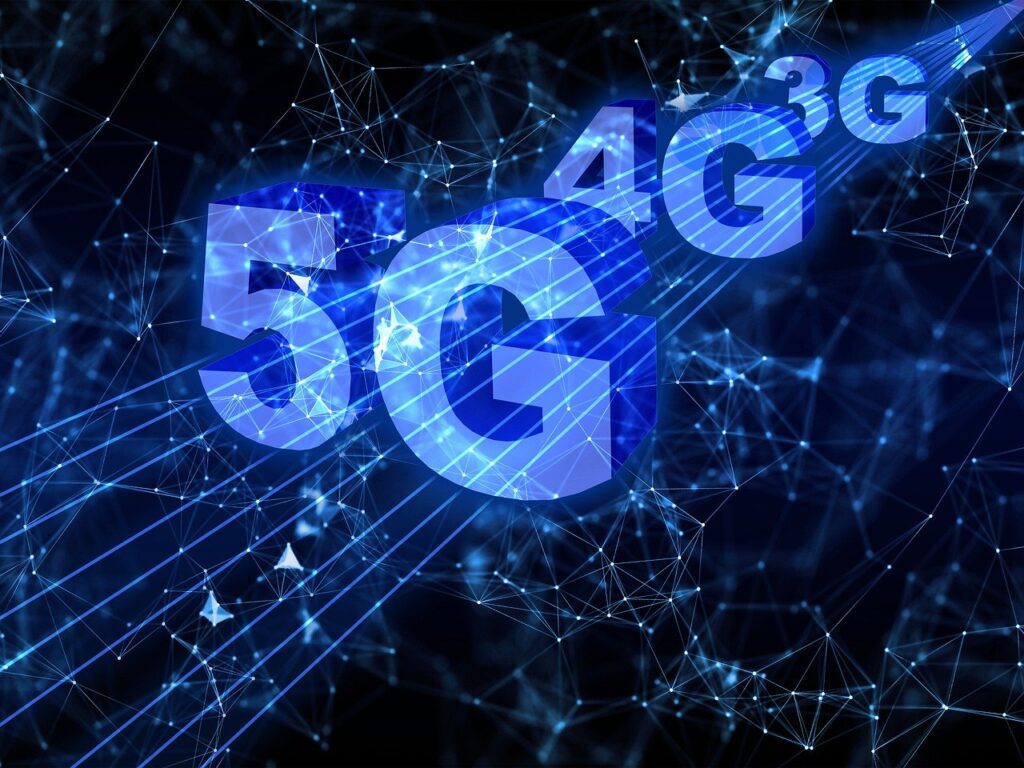Nigeria’s mobile communication technology has progressed from the first generation to the fourth.
Nigeria’s communication technology is on its way to being upgraded by the 5th generation. Earlier this month, the Nigerian Communication Commission (NCC) struck an agreement with NigcomSat, a Nigerian communications satellite company, to use its C-band spectrum to provide improved 5G services in Nigeria. The C-band is the most acceptable and appropriate for the initial deployment of 5G in Nigeria, according to the NCC chairman. The chairman of the NCC stated the C-band is the most suited and appropriate frequency for 5G rollout in Nigeria right now.
The NCC Executive Vice Chairman Umar Danbatta remarked that the C-band is the most suited and appropriate frequency for 5G rollout in Nigeria right now. 5G on the C-Band spectrum will aid in the implementation of cutting-edge technology and services that will transform Nigerian business, industry, and daily life.
Prof Adeolu Akande, Chairman of the NCC Board of Commissioners, stated that “many administrations had begun to license spectrum for commercial deployment of 5G.” “5th generation builds on this memorandum will deliver significant network enhancement, including faster connection speeds, mobility, and capacity, as well as low latency capabilities,” he continued.
In a consultation document named: “Deployment of Fifth Generation(5G) Mobile Technology in Nigeria”, the Nigerian Communication Commission expounded on the country’s 5G implementation strategy. According to the document, “Nigeria will be among one of the few countries in the world to install 5G technology.” “5G symbolizes the fifth generation in the evolution of mobile communications, with a gradual rollout projected over the next decade.” “5G is envisioned as a system of systems that will provide greater flexibility to mobile, fixed, and broadcast networks while also supporting greater data demands.”
According to new data from the Global Mobile Suppliers Association, 18 African countries are testing or deploying 5G.
Last year, South Africa became the first country in Africa to roll out 5G services, and Kenya became the second country in Africa to do so last month, as mobile network provider Safaricom launched 5G services in the country.
Nigeria is conducting 5G trials in specific areas of the country in partnership with other operators, according to the finding in the document. The government has supported 5G related research projects in order to provide Nigeria with the best available communication infrastructure.
The adoption of fifth-generation technology in Nigeria will benefit all stakeholders as well as the country’s digital economy. As a result of the technology, people will have a better quality of life and be more productive. Subscribers will benefit from better broadband speeds and increased reliability. The high bandwidths are expected to transfer a massive amount of data at a pace of 10 gigabits per second (gbps), ten times quicker than the existing speed.
Because of its low latency (response rate) and large capacity, 5G will make the Internet of Things a reality.
The reaction time will be as little as one millisecond, with 4G taking 30 milliseconds and 3G taking 100 milliseconds.
According to the research,”IHS Economics anticipated that 5G would enable $12.3 trillion in worldwide economic production in 2035,” according to the study. “Autonomous vehicles and advanced manufacturing are two technologies that are now being promoted,” according to the report, “as well as the Internet of Things (IoT), which will allow thousands of connected objects, such as smart energy meters, to interact and exchange information.”












